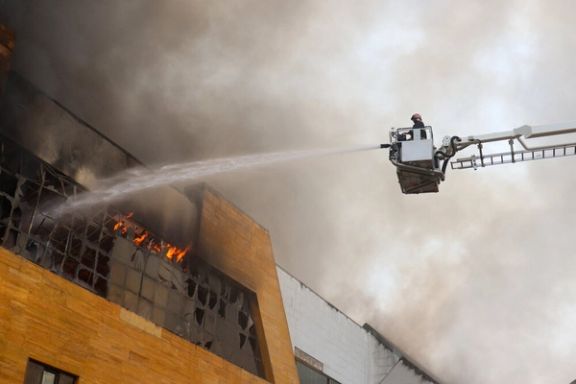The hollow state: how Islamic Republic endures by normalizing collapse

A 12-day war with Israel has ushered Iran into a new phase where crisis is no longer episodic but structural—an unstable order held together by instability itself.

A 12-day war with Israel has ushered Iran into a new phase where crisis is no longer episodic but structural—an unstable order held together by instability itself.
Though short-lived, the war inflicted deep symbolic and political damage on Tehran.
Strikes on strategic infrastructure, the killing of top commanders and damage to air defense systems raised serious doubts about the Islamic Republic’s capacity to provide security.
Far from healing old wounds, the war exposed and deepened the theocracy’s core weaknesses.
From water and power shortages to currency volatility, from political gridlock to widening social divides, nearly every facet of life in Iran bears the mark of dysfunction.
Instability is now normalized. It’s not the exception but the constant.
The new normal
Even before the war, Iran faced a web of interlocking crises: economic collapse, institutional decay, mass emigration, widespread social discontent, and deep political distrust.
Some political actors believed tactical flexibility or resource redistribution might restore order. Others foresaw collapse as inevitable. Both camps, in different ways, assumed that transformation—whether internal or external—was still possible.
The war has shifted that assumption.
Iran’s ruling establishment no longer appears capable of restoring legitimacy or reorganizing itself, but viable alternatives also seem more fractured than ever.
The opposition is scattered, the political class adrift, and grassroots movements are fragmented and organizationally thin.
Much of society is caught in a suspended state: disillusioned but not mobilized, angry but exhausted.

The Islamic Republic has tightened control—erecting checkpoints, increasing Revolutionary Guards and Basij presence and policing public spaces.
The message is blunt: We are still here. But this is not stability born of legitimacy. It is the visibility of power imposed on restless cities.
Today’s urban order rests not on consent, but on continuous police presence.
A collapsing narrative
The 12-day war exposed the hollowness of official narratives: deterrence, security and regional authority no longer carry weight.
Iran’s vulnerability wasn’t just military. It was discursive. The state’s security narrative took a direct hit.
Worse, the war ended without a lasting peace or credible guarantee against future conflict. Peace itself has become unstable. It’s more of an anxious interlude, not a resolution.
With explosions and air defense activity continuing in multiple regions, many expect a new, possibly more intense, confrontation.
Living With Crisis
The long-held notion that the Islamic Republic feeds on crisis is no longer sufficient.
In the past, crises were instrumental—tactics to manage society and consolidate power. Today, crisis is not just a means of rule but the system’s very foundation.
Crises are no longer resolved; they are extended, normalized, and embedded into daily life. The system doesn’t merely survive crisis—it is sustained by it.
This condition has been made possible by a combination of factors: the absence of a unifying alternative, the suppression of public discourse, the fragmentation of dissent, and the systematic blocking of political imagination.

The state has succeeded in minimizing mobilization through control—but it offers no vision for legitimacy in return.
Power has become form without content—a hollow repetition of authority sustained by imposed hopelessness.
Yet this persistence is not stability.
Chronic instability may appear contained—thanks to force and habituation—but the cracks are widening. The theocracy is more detached than ever from the economic, social and institutional foundations that once upheld it.
The drift into slow, grinding dysfunction leaves the country vulnerable to sudden shocks: social uprisings in neglected regions, systemic failures in water, health, or energy, or collective protests triggered by seemingly small sparks.
The Islamic Republic may still be standing—but the ground beneath it has never been shakier.